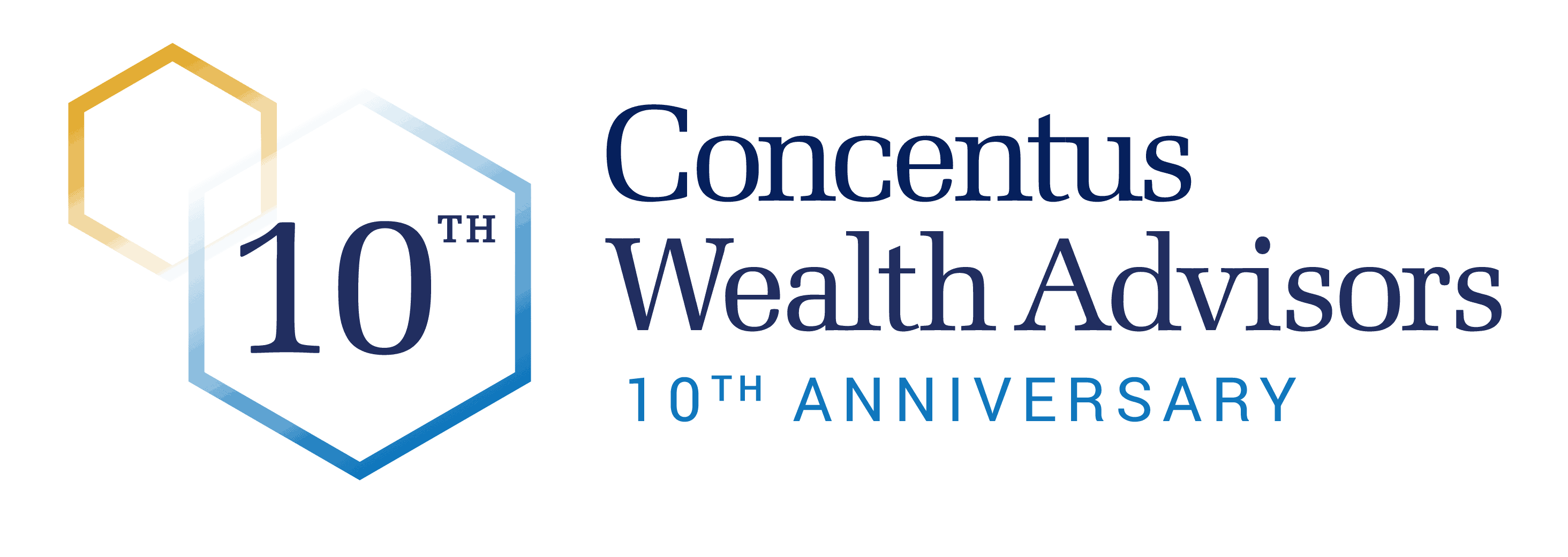“If you change your investment policy, you are probably wrong. If you change it urgently in response to current events, you’re guaranteed to be wrong.”
– Charles Ellis
In last month’s article, we examined the importance of your “Starting Point” in measuring investment returns. This month we break apart the fallacy of “The Stock Market.”
Stocks as Poker Chips
Over our 200 years of collective experience, Concentus has developed a very specific Capital Markets Philosophy, which guides our investment decision process. One of the most significant pillars of that philosophy is that the real long-term risk of owning equities is embedded not in the values of the companies themselves, nor in the global economy, but it is in the mind of the investor himself. Simply put, our emotions and our flawed perceptions about the world are likely to be our biggest obstacles to investing success. In words of legendary investor Benjamin Graham, “The investor’s chief problem, and even his worst enemy, is likely to be himself.”
We have noticed that one of the most flawed perceptions that most investors suffer from, is the way in which most people define “The Stock Market” as an entity in and of itself. For most people, “The Market” functions somewhat like a casino – it’s a place where money is won or lost according to the capricious winds of chance and where volatility and chaotic conditions are commonplace. There is no real pattern or order to this chaos; it’s a game of chance. Our ability to “make money in the market” only stems from the ability to handicap the volatility and chaos and figure out a way to predict it.
For some unknown reason, Americans have a great deal of difficulty perceiving the nature of stocks as shares of companies, which represent a direct ownership of the earnings, cash flow, and assets of actual businesses that Americans patronize every day.
In the quest to become a great investor, foundational skills is the ability to remind ourselves that stocks are actually shares of the profits, earnings, and assets of real companies that all of us patronize every day, made up of real people, with real ingenuity, creativity, and intelligence.
The Great Companies of America and the World
At Concentus, we don’t like to use the term “stocks” or “the Stock Market.” We call it investing in the Great Companies of America and the World.
When we do this, we can take an important kind of emotional and perceptual power in our investing. Instead of worrying about how the Federal Reserve, Covid, the next geopolitical crisis, or some other exogenous factor is going to hit “the market,” we can instead think about how wonderful it is that Proctor & Gamble figured out a way to raise the price of a box of Pampers, or Intel invented a new kind of microchip, or Amazon improved their logistics management.
It takes us down from a huge, mysterious, and confusing marketplace, influenced by scary geopolitical, economic, and exogenous factors, and puts us back in a place where we can feel content investing in the amazing ingenuity, creativity, and problem-solving skills of the people who run actual businesses. And that is exactly what great companies do – they work around and ultimately overcome their problems. In Phil Knight’s famous book Shoe Dog, he offers us a deep chronicle of potentially existential crises – each one ultimately surmounted in its time. And this is the story of every entrepreneur and every business in the world as expert problem solvers.
Other than obsolescence, competition, or simply losing their way, what is the one intractable problem successful companies must always face, decade in and decade out, in keeping their earnings and dividends growing? Of course, it’s inflation in their costs. And how, in addition to ceaseless innovation, do they deal with cost pressures? By passing those cost increases along, to the consumer. McDonald’s will raise the price of a Big Mac by a nickel; General Mills will raise the price of a 20-ounce box of Cheerios by a dime. Procter & Gamble will increase the price of Pampers. Thus, without necessarily selling any more Big Macs, boxes of Cheerios, or packages of Pampers, these companies, and hundreds like them, will record higher sales, earnings, and dividends. As owners of these great companies, we can benefit from the most effortlessly efficient, long-term inflation hedge that ever was, or ever will be, available to ordinary people.
What about when economic disaster strikes? What great company ever suffered an economic disaster more complete than that which befell Marriott in the pandemic? Its business all but ceased to exist when the virus struck; its stock halved in a matter of days. The company responded by closing its hotels and furloughing hundreds of thousands of people worldwide. That was 18 months ago. As I write, the stock is about where it was when the pandemic took hold; the CEO says their occupancy over the July 4th weekend was “through the roof” and that the company is experiencing “real pricing power.”
We must remind ourselves constantly that we are owners of successful businesses. Companies that we know and patronize. Great companies stay that way by working through their problems, innovating, and getting better. We must also remind ourselves constantly that “The Stock Market” is a mere abstraction – it is not real; it is only a collection of the equity ownership of the real businesses that make it up – companies that constantly demonstrate their strength and resilience in the face of difficult problems.
Great Companies vs. Inflation
Although “The Market” may go through ups and downs, eventually equities and companies accrue value constantly. Because they solve problems, and they fight inflation by raising their prices and innovating.
It seems that many investors today are wondering what to do about incoming inflation, which is a concern we share here at Concentus. It seems to us that the only way to protect, preserve, and grow our wealth today is to own a portfolio of these great businesses, who offer us this inflation-fighting opportunity. The record on this point is quite clear.
Back in 1946, the S&P 500 stood at a level of 19.3, and in the last 75 years, there have been 16 times during which “The Market” crashed by 20% or more. The worst of these was in 2008, when it crashed by 57%. Perhaps the scariest was last March, when it was down 34% in a single month. However today the Index stands at 4,447, which is about 230 times higher, not including the dividends received along the way. The cash dividend paid by the S&P 500 companies in May 1946 was running at an annual rate of about $0.68; assuming as we do that it comes in this year around $60, it will also be up 88 times.
Over this same period, consumer prices, as measured by the CPI, are up about 15 times.
The totality of history, however you choose to segment it for illustrative purposes, amply demonstrates that the relentless, permanent upward march of equity values and dividends is the greatest generator of real wealth, after accounting for inflation, there’s ever been. Why? Because equity values represent a share of the earnings and profits of real businesses, and human ingenuity is really the only natural resource there is, and the good news is that it never runs out.

